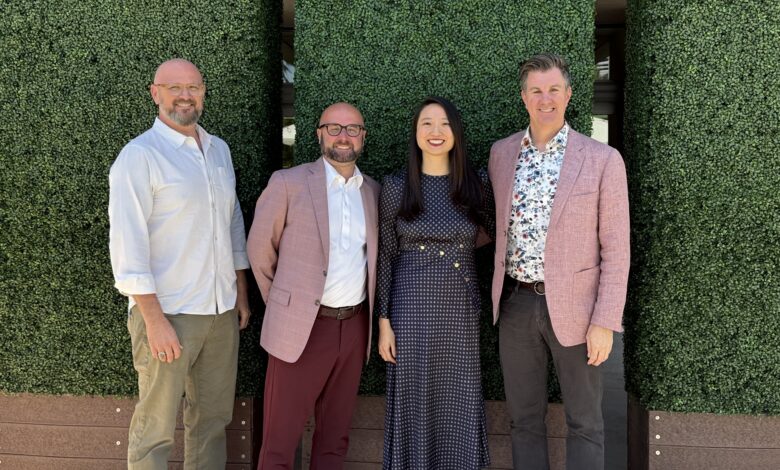
BITAC Operations 2025 Panel: Navigating the Tech Landscape, Part 2
By Jim Nelson | May 8, 2025
NEWPORT BEACH, CA — At the recent BITAC/Hotel Interactive annual Operations event, one of our panels discussed the latest technology from different angles.

Moderated by Brent Hayhurst, the VP of program development at Curator Hotel & Resort Collection, the panelists were David Lang, VP of operations at New Waterloo; Tony Roumph, the managing director at Noble House Hotels & Resorts, and Connie Wang, the area managing director for Highgate Hotels.
In part 1 of this article, we learned about the role that technology plays in helping your property stand out and some of the key decision factors that our panelists look at when they’re evaluating new tech.
BRENT HAYHURST: Tony, Hotel Argonaut tends to be the pilot hotel for a lot of the tech that Noble House [tests], some of that driven by the above-property management team, some by your ownership structure. How do you approach this as the leader of the property and keep your team engaged and help to empower them to continue testing and looking forward?
TONY ROUMPH: Sometimes it’s a lot of fun, and sometimes it’s a lot of work when it doesn’t quite go right. So, I always like to go in with an open mind, figure out what I’m solving for, and then have a critical path in place on how we’re going to get there. I’ve had a couple of projects go sideways where you never really stopped to think, “Oh my God, there’s so many different vendors involved that need to talk to each other.” Getting that in place first, to fully understand what I’m walking into, is hugely important.
On the team side, it’s getting them involved early, getting a buy-in. Hotel people typically don’t like change, so explaining to them how their lives are going to be made easier with this installation —because I’m the one selling the dream, and they’re going to have to service the nightmare. So, getting a lot of positivity with the team early on is hugely important to being successful.
BH: You’re talking about when a project goes south, when tech doesn’t do what it’s supposed to, that’s the risk you take on with early-adopter status. Is there still benefit to being the early adopter? Is there a risk/reward balance there for trying new tech, staying ahead of the curve?
TR: It’s a lot more work, but you can help the developer create what’s really to your benefit. I mean, they’re listening to your input. What’s going to work best for my hotel? I’m going to have that product built that particular way. I think there’s a lot of value. I think also, from a cost perspective, getting into something early, and if you’ve found the right partner, that’s a big help as well.
CONNIE WANG: I would 100 percent agree with Tony on that one. We piloted a number of technologies for our company, and I love it. I prefer being the pilot hotel for the same reasons, because you build a relationship early on, you are able to customize and be more flexible to your hotel specifically, and then you have that relationship where you can really lean on your partner to be successful together.
BH: So, we have a little bit of a rapid fire round planned; I’ll throw out a topic, [and I’d like to hear your] initial gut reaction — positives, negatives, what your thoughts are, and where you’d like to potentially see that technology go. The first one we’ll do: guest communications.
DAVID LANG: Guest communications is the foundation of everything we do, whether it’s creating the experience or driving the revenue, communication is paramount, both with our guests and our employees. From a technology standpoint, that’s one of the areas I’m most interested in.
TR: Something that’s always bugged me is everyone has text service or SMS right now, but a lot of times teams just leave that unanswered, and it just drives me crazy. So, where can we find efficiencies where we can automate things to a level that still feels personal, but is actually getting timely responses back to guests, too?
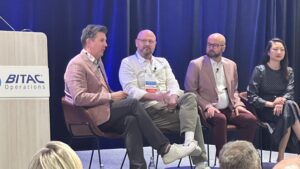
CW: One of the things that I’m working on for Viceroy as a brand right now is how do we deliver these very unique guest experiences, and we can communicate with our guests how to purchase it, how to schedule that in their day before they arrive. For example, for meeting planners we’re working with a local ceramic studio for a team-building fun experience for when they come. Hotel Fig is in downtown LA surrounded by tall skyscrapers, but we actually have a cactus grove that surrounds a pool, and we do dive certification in the pool. So, all these unique guest experiences that we’re sharing with our customers; at what point in the stay do we communicate that? Is it prearrival? Is it when they already get here, but maybe they only staying for two nights, and they’re not able to put that into their stay. We’re looking for a solution across the board, on our website and throughout our communications on how to best connect with customers on those experiences.
BH: In-room dining model.
DL: If anyone has the best solution, I want to hear about it. Our experience post-COVID, IRD revenues have been on a steady decline, and we have tried any number of solutions: old school menus in the room, calling, QR codes, ordering through TVs, and we have not been able to find the right solution.
TR: In a few of our hotels, we have a partner for in-room QR code ordering; [in] a lot of our hotels, we don’t have a room service cashier taking orders, so it’s really someone in the restaurant picking up a phone. That’s definitely helped. I have seen a couple different providers where that AI voice agent is also linking into your POS, and that, while it’s tech, still gets to your point about being more of a personal touch. That’s something that we’re looking at.
CW: We have a similar solution to what you have Tony, which is the QR code in the guest rooms. From a labor-savings perspective, more and more hotels are going in that direction instead of the voice call and so, I think, our customers are over time. When we started it, we were not getting too much traction on it, but recently our sales have been great. Because there’s also an adoption factor. I think since COVID, people are used to the QR code systems and we’re educating the customer that way.
BH: How about all-in-one solutions versus integrated tech stacks?
TR: All in one solutions would be amazing, and I know our lives would be easier. I’ve just never come across [one that does] more than one thing, really, really well. I feel like it creates that pain point working with multiple vendors, but to get best-in-class products, I just haven’t personally seen it out of an all-in-one solution.
DL: I would agree with that. When you try and be all things to everyone, you tend to end up being nothing to anyone. One of the complications that I’m finding navigating tech partners is redundancies. I already have a solution in place that does 30 to 60 percent of what I want to accomplish, and the other partners can fill in that gap. But there’s a redundancy with the existing partner, and it’s a little complicated, and I know you guys are all dealing with it out there as well.
BH: We heard from our peer panel yesterday focusing on everybody’s favorite buzzword: AI. Any takeaways from any of you on what was discussed there, or something specific that really caught your attention?
TR: I love it being at a property level position. I use it daily for guest review responses. I have my GPT tuned to maximize my SEO. I use it for translation for anything team member-facing. We ran through scenarios to help with Expedia ads and how to maximize that. There’s a lot of fun things, and I’m personally really excited about it.
DL: Agree. If I could only find an AI-based scheduling solution to help us.
CW: Right now, the majority of what we use AI for is on the back end. Anything that requires us to synthesize a large amount of data — revenue management, accounting — that is probably the majority of what we use AI for, at a very sophisticated level. I think that the guest-experience piece is coming.

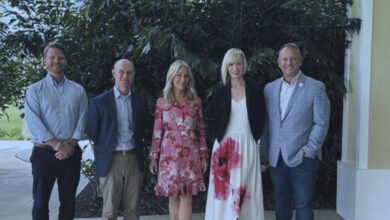
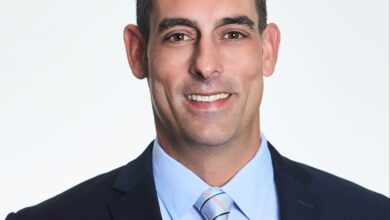
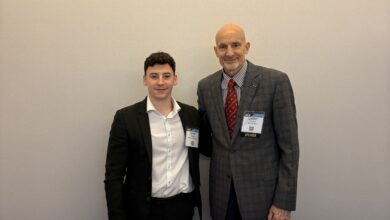
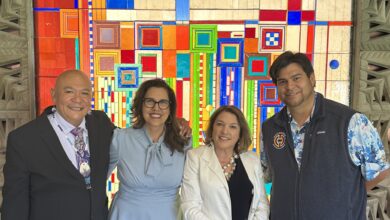
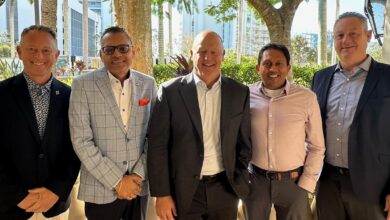
Get involved!
Comments